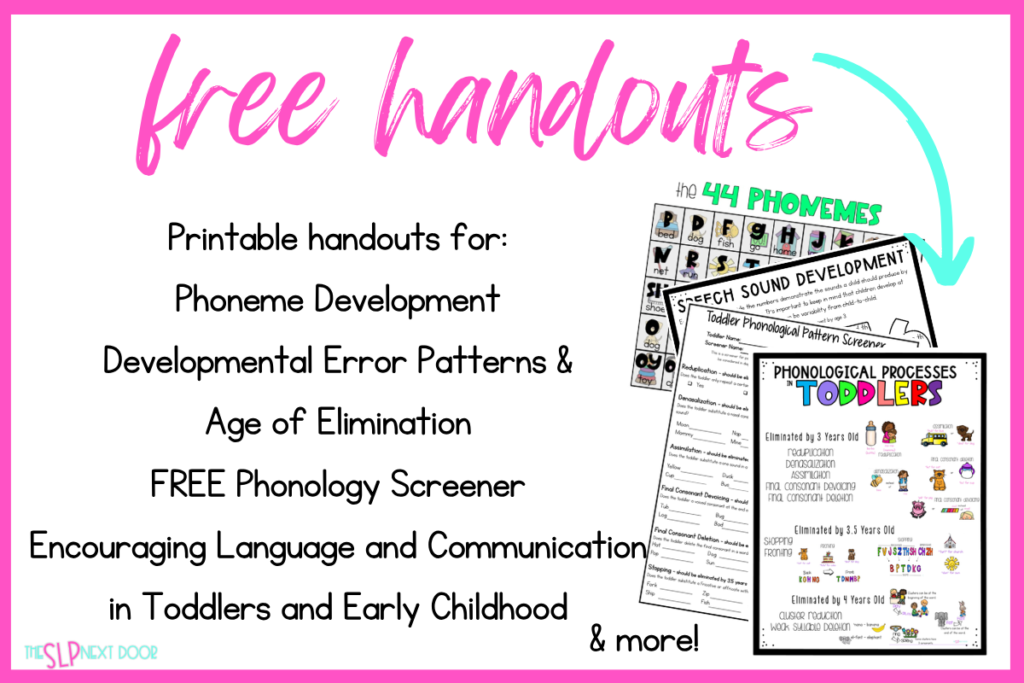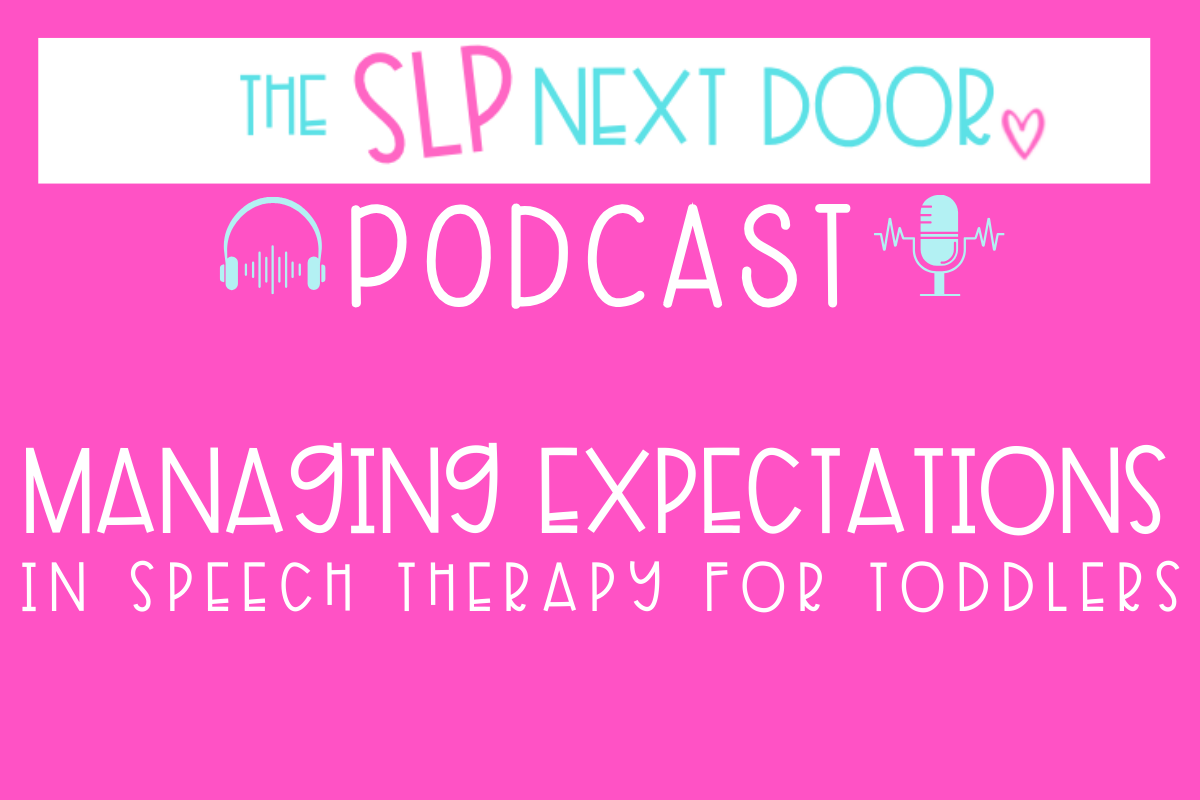We are going to discuss managing expectations during speech therapy for toddlers! In this episode, we chat about different ways to view progress, how to take a step back and reassess your sessions, and why prelinguistic skills are so important!
Hold on to your pants, friends. I’m about to drop a truth bomb. But I want you to know that everything I’m saying, I’ve experienced myself with my caseload.
It’s normal for toddlers to have big feelings, express their communication in a variety of ways, and even exhibit behaviors. It’s normal. It’s normal for their attention to task to be short, their ability to color not show up until they become school age, and only engage and interact with play-doh for about 1.5 minutes before moving on to the next task.
We have to know what is normal to set our expectations accordingly. What’s heartbreaking to me about this population is that toddlers are often overlooked. I am so happy to see more and more clinicians speak up about this population because the first 4 years of life are so important. And it’s even more important for those of us on the frontlines of treatment to know how development occurs within this age group.
As clinicians, we must look outside the “we’ve been working for weeks now, and they don’t talk yet.” Ask yourself: how do they respond to their environment? Do they engage in turn-taking or exchange vocalizations? How is their attention to task?
What needs to change for us to make progress?
We often go into speech therapy for toddlers with the wrong expectations. We want them to fit into a box or our session to be perfect with the perfect activities and interactions.
But life is not perfect. And neither are toddlers.



